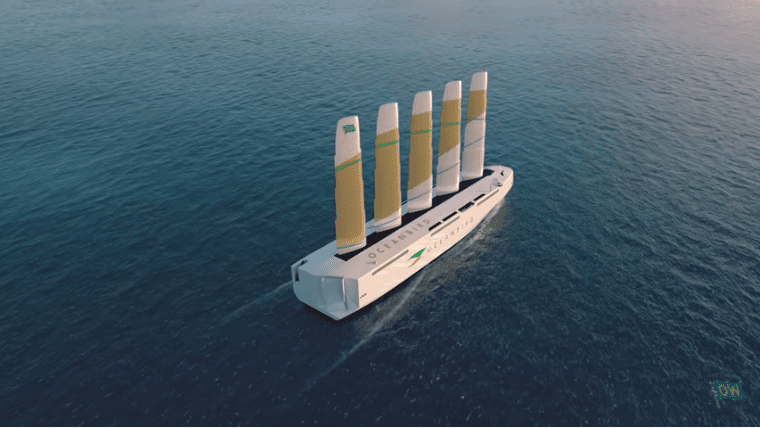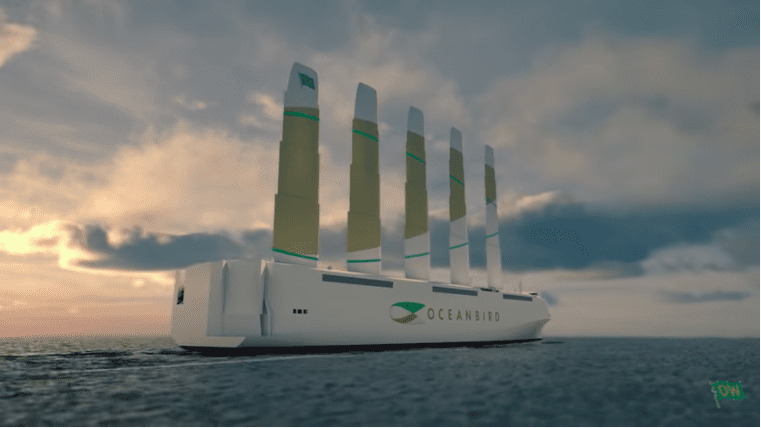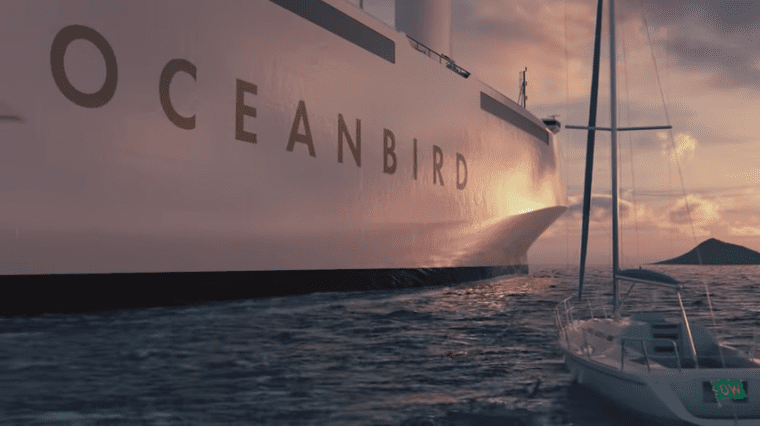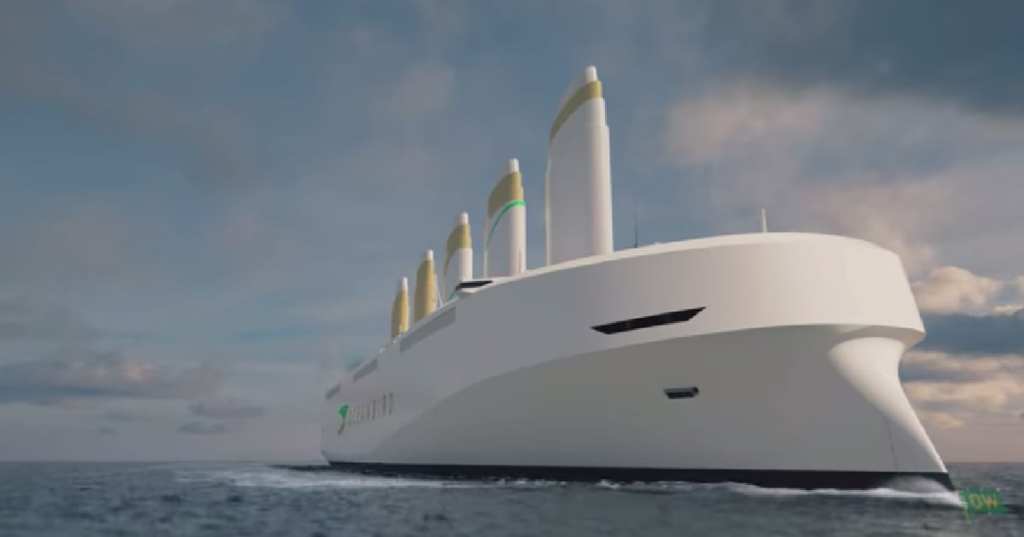The time has long passed for innovators around the world to start looking toward the future. Our days of relying on fossil fuels to sustain our energy needs should have already passed, and so we’re out there, searching for replacements that are efficient in every sense of the word.
Enter a shipping barge that’s entirely powered by wind, but is efficient and strong enough to move 7000 cars all the way across the Atlantic.

Image Credit: YouTube
Right now, 90% of the world’s goods are moved by ship, and even though it’s typically better for the environment than using air transport, regular cargo ships are powered by fossil fuels. Their emissions are thought to be responsible for around 2% of energy emissions worldwide – and that number is on the rise.
This new ship design would still be able to move large amounts of goods, but as it requires only wind power, it releases only about 10% of the emissions.
The ship, called the OceanBird, will have the capability of moving 7000 cars across the Atlantic.

Image Credit: YouTube
Her retractable wing sails stand 262 feet high and are controlled by calculations that find the most efficient way to use wind power over the ocean. It does have a backup engine that runs on clean fuel; in an ideal world, it will be used mostly for navigating the world’s harbors.
The OceanBird is capable of an average speed of 10 knots, which means it can cross the Atlantic in around 12 days – about 4 days longer than current, fuel-powered ships make the trip.
The design was helped along by the discovery that wind speeds vary less than they thought, and also that their hull design has an impact on wind speed and direction, not only the ship’s sails.

Image Credit: YouTube
They also believe their design could be applied to ships that use traditional fuels, even cruise ships, says Per Tunell, the COO of Wallenius Marine.
“It’s not a competition, but rather a direction we all need to take.
By being transparent in the process, we want to inspire others to test the limit to what is possible.”
We could see a test of the design as early as the end of 2021, though 2024 seems a likely date to expect the fully-built OceanBird to make its maiden voyage.
Said Tunell,
“A lot of reactions contain hope.
Finally a solution that is real and will make an actual contribution to slow down climate change.
I think we are all starving for positive news in that area.”
Check out this video:
I think he’s right about that.
No news may be good news, but when it comes to combating climate change, good news that’s good news is even better.






